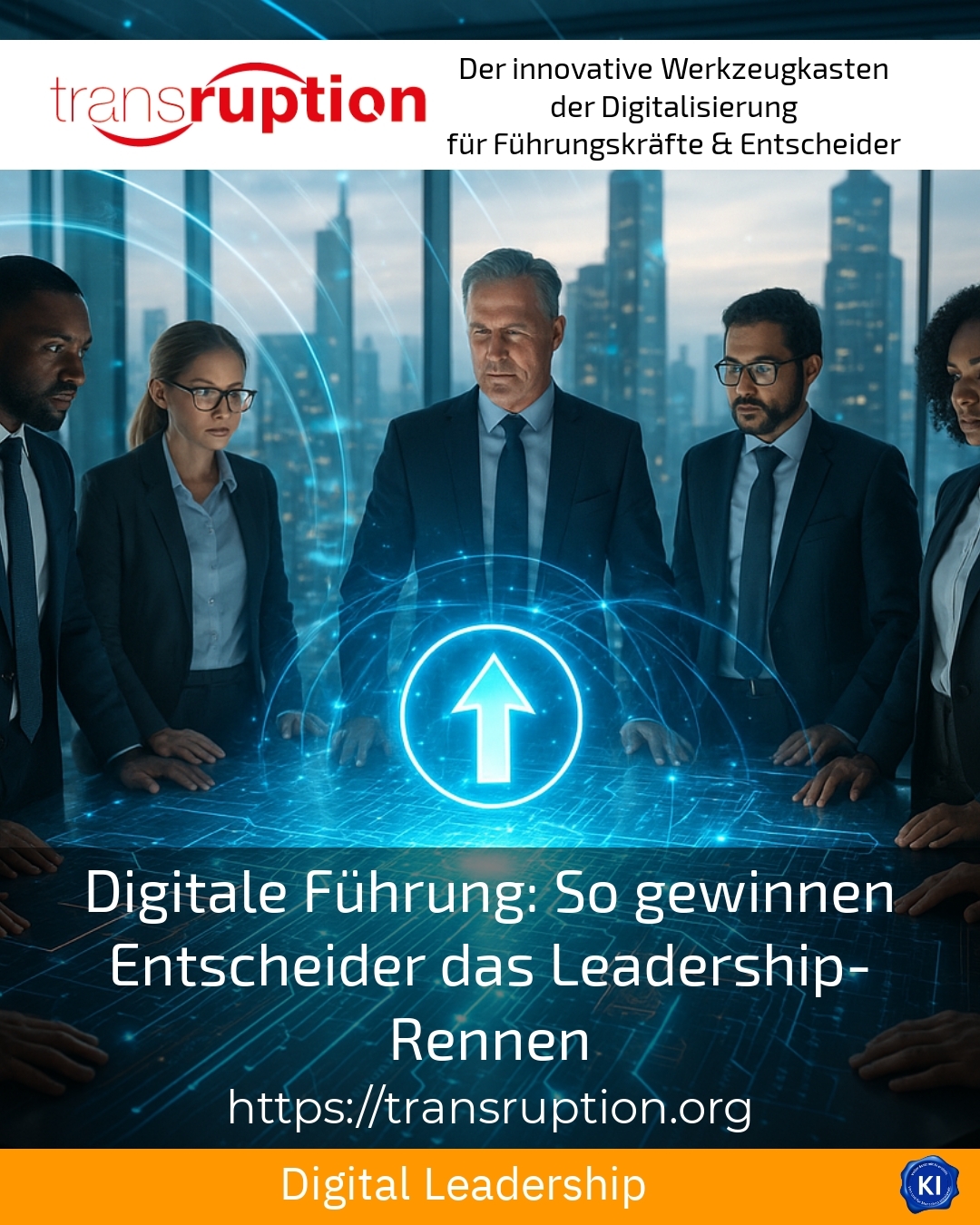The digital transformation presents managers with new challenges. Digital leadership is becoming increasingly important as it helps decision-makers to succeed in the leadership race. It combines technological expertise with human sensitivity in order to provide orientation in a dynamic working environment. Modern leadership skills can be used to motivate teams, drive innovation and ultimately secure competitive advantages.
Why digital leadership is essential for decision-makers today
In a fast-moving, digitalised world, companies are usually under intense competitive pressure. Decision-makers frequently report that they are often no longer able to react flexibly enough with traditional management approaches and rigid structures. Modern leadership is therefore more than just the use of digital tools - it involves a holistic understanding of networked processes and new ways of working.
One example of how digital leadership can significantly shorten innovation cycles can be seen at a medium-sized company in the mechanical engineering sector. Agile methods were introduced there and digital collaboration platforms were used to network both internal teams and external partners more effectively. This combination supported rapid adaptation to new market requirements, which significantly strengthened competitiveness.
In a software company from the IT sector, digital leadership increased employee engagement by establishing more flexible home office models. Managers enabled employees to work independently with the help of digital workflow tools, which not only increased satisfaction but also team productivity.
BEST PRACTICE at the client (name concealed due to NDA contract): In an international service company, transruptions coaching supported the transformation process in the areas of leadership and communication. This support helped those responsible to overcome resistance and introduce a sustainable digital leadership culture, which had a positive impact on motivation and collaboration.
Core competences of effective leadership in the digital age
Decision-makers who want to win the leadership race need a bundle of competences. These include in particular
- Technological expertise: Understanding of new tools and their meaningful integration into processes.
- Agility and flexibility: Rapid adaptation to changing conditions and promotion of independent action.
- Strong communication skills: Transparent and regular communication creates trust and orientation.
- Empowerment of employees: Teams are empowered to work in a self-organised and creative way.
- Collaboration skills: Networked collaboration across departments and locations.
This can be seen in practice in an international retail company that trained its managers to make data-based decisions and establish a feedback culture. This optimised the flow of information and increased the speed of response to market changes.
Another example is a financial services provider that introduced a digital learning platform to continuously train managers and employees. This strengthened the mindset for innovation and the shared understanding of goals in a constantly changing environment.
Digital leadership also works in an energy company by managers acting as a driving force and creating structures that promote innovation. This includes the targeted use of collaboration tools and a transparent information policy that makes changes understandable and minimises fears.
How transruption coaching supports decision-makers in digital leadership
Many decision-makers are looking for support in the digital transformation of their leadership culture. transruptions coaching supports project teams and managers by providing impetus for the implementation of modern leadership concepts. It's not just about technology, but above all about working together and strengthening your own leadership role in the digital setting.
In detail, thematic priorities are set, for example
- Development of a clear mission statement for digital leadership
- Training in the use of digital tools to improve communication and collaboration
- Coaching managers to promote agility and a willingness to innovate
- Supporting change management in transformation processes
BEST PRACTICE at the client (name withheld due to NDA contract): A medium-sized production company used transruptions coaching to advise managers on the transformation from hierarchical to agile collaboration. Targeted impulses were used to actively shape the cultural change and rethink leadership.
Recommendations for decision-makers in the context of digital leadership
To be successful in the leadership race, several concrete steps are recommended:
- Reflect on your role as a manager: Digital leadership means being more of a coach and initiator than a pure decision-maker.
- Promote continuous skills development: Invest in training on digital tools and agile methods.
- Set clear goals and values: A common understanding facilitates digital collaboration.
- Use digital collaboration platforms: These increase transparency and speed up decision-making processes.
- Actively support change processes: Change management is central to sustainable success.
One publishing house, for example, implemented an in-house social intranet that significantly facilitated dialogue between the editorial team, marketing and sales. The managers organised regular digital feedback sessions, which strengthened team spirit and encouraged creative ideas.
A logistics service provider also shows how transparent communication in combination with digitally supported planning processes can increase employee involvement and thus boost operational efficiency.
BEST PRACTICE at the customer (name concealed due to NDA contract): A technology start-up benefited from coaching that specifically taught agile leadership methods in conjunction with digital tools. This promoted self-organised teams and accelerated product development.
My analysis
Digital leadership stands for a modern, holistic management style that combines technical expertise with human leadership skills. Decision-makers who consistently implement this form of leadership gain agility, innovative strength and employee satisfaction. Digital leadership is not just a technical necessity, but above all an approach that empowers teams and makes the company future-proof. The support provided by transruptions coaching offers practical support that enables decision-makers to successfully shape the digital transformation.
Further links from the text above:
Digital leadership: Leading in the digital transformation
Digital leadership: How to succeed in leadership 4.0
Digital leadership: trends & challenges
For more information and if you have any questions, please contact Contact us or read more blog posts on the topic TRANSRUPTION here.
















